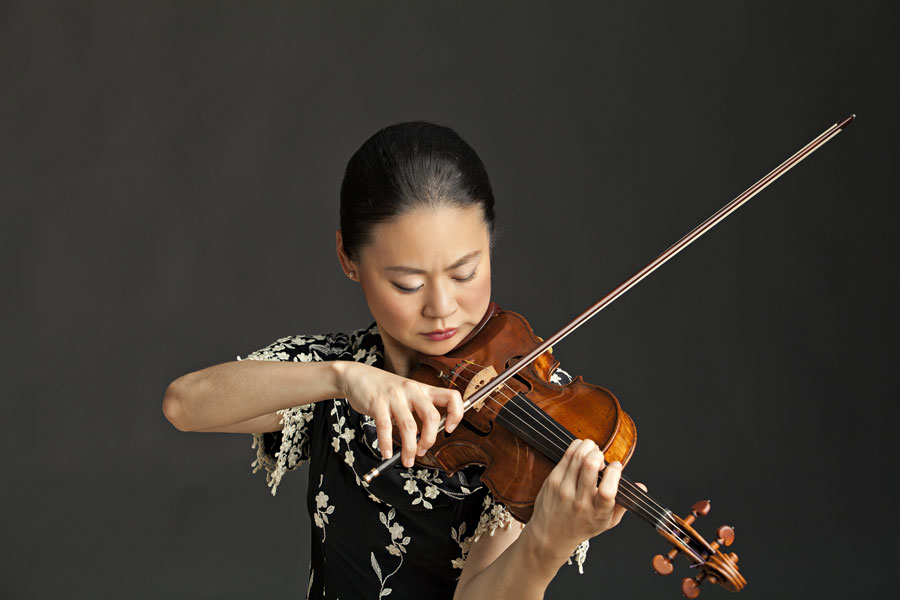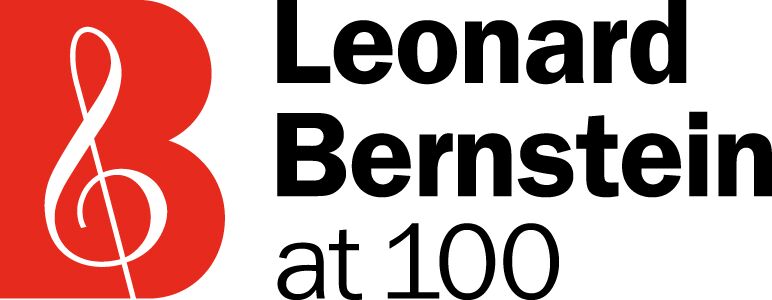We invite you to join us for the Opening Night Celebration of the 2017-2018 season of the NFM Wrocław Philharmonic with director, and Bernstein disciple, Eiji Oue! Opening with Krzysztof Penderecki’s UNESCO Award winning Threnody to the Victims of Hiroshima, the program will showcase the beloved works of Leonard Bernstein, Serenade, featuring violinist, Midori Gotō, and Symphonic Dances from West Side Story. Along with the timeless American classic, Aaron Copland’s Appalachian Spring, the evening will be the event of the season!
Born in Japan, Eiji Oue began his musical studies with piano lessons at the age of four. As a teenager, he entered the Toho Gakuen School of Music as a performance major, beginning his conducting studies that same year with Hideo Saito, the teacher of Seiji Ozawa. In 1978 he was invited by Ozawa to spend the summer studying at the Tanglewood Music Center where he met Leonard Bernstein, who later became his mentor and colleague. Eiji Oue is Conductor Laureate of the Osaka Philharmonic Orchestra, having served as Music Director from 2003 to 2011. He serves as Conductor Laureate of the NDR Radio Philharmonic Orchestra, in Hannover, a collaboration which began as their Principal Conductor from 1998 to 2009. Oue has also held the positions of Music Director of both the Minnesota Orchestra and the Orquesta Simfònica de Barcelona i Nacional de Catalunya.
Midori Gotō is one of the most admired violinists of her generation. In 1982, Zubin Mehta invited the 11-year-old Midori to make her debut at the New York Philharmonic’s New Year’s Eve concert. Midori has been recognized as a dedicated and gifted educator and an innovative community engagement activist throughout the US, Europe, Asia and the developing world. She was recently named a Messenger of Peace by U.N. Secretary-General Ban Ki-moon and received the prestigious Crystal Award by the World Economic Forum in Davos. Midori plays the 1734 Guarnerius del Gesù ‘ex-Huberman’. She uses four bows – two by Dominique Peccatte, one by François Peccatte and one by Paul Siefried.
Krzysztof Penderecki was born on November 23, 1933, in Dębica. He comes from a multi-cultural family with Armenian, German, and Polish roots. He started his musical training with piano lessons but was more interested in his father’s violin. As a student, he went to Kraków to study composition. Penderecki studied composition first with Franciszek Skołyszewski and then with Artur Malawski and Stanisław Wiechowicz at the Academy of Music in Kraków. In 1958, he began lecturing in composition, and in 1972, he became a professor. He also gave lectures as an assistant professor in Essen at the Folkwang-Hochschule and at Yale University. From 1987 to 1990 he was the artistic director of the Kraków Philharmonic, and since 1993 he has been the artistic director of Festival Casals in San Juan, Puerto Rico. Starting in 1997 he became the music director of Sinfonia Varsovia, and in 1998 he began advising the Beijing Music Festival. Since 2003 he has served as the Artistic Director of the Sinfonia Varsovia. He regularly works with the Polish National Radio Symphony Orchestra and Sinfonia Iuventus, the Beethoven Academy Orchestra, Sinfonietta Cracovia, and the Warsaw Philharmonic Orchestra.
Hi most successful works include Threnody to the Victims of Hiroshima (1960), St. Luke Passion (1966), Cello Concerto No.2 (1983) written for Mstislav Rostropovich, Polish Requiem (1984), Symphony No.3 (1995), Violin Concerto No.2 written for Anne-Sophie Mutter (1995), Symphony No.7 The Seven Gates of Jerusalem (1997) and the Double Concerto (2012). Also a prominent film composer, Penderecki wrote music for one full-length feature film The Manuscript Found in Saragossa by Wojciech Jerzy Has, and his work can also be found in Kubrick’s The Shining, Friedkin’s The Exorcist, The Mask by the Quay brothers and Shutter Island by Martin Scorsese.
Aaron Copland composed Appalachian Spring, between the spring of 1943 and the summer of 1944, as a ballet for choreographer Martha Graham. It was commissioned by Graham via the Elizabeth Sprague Coolidge Foundation. The first performance took place on October 30, 1944, at the Library of Congress in Washington D.C. with Louis Horst conducting. Copland is one of the most important early composers in the United States and he helped to establish a distinctively American sound. Virgil Thomson called him, “the president of American music.” No other score captures the vast open spaces, the enchanting furrowed fields, and the spirit of the American dream, like the Appalachian Spring. When Copland received Graham’s first script, he realized, “This is a legend of American living. It is like the bone structure, the inner frame that holds together a people.” Graham’s original scenario seemed an amalgamation of many threads of American social history, all coinciding around the Civil War Era, somewhere in the American heartland. Later the setting grew more precise, becoming rural western Pennsylvania, not far from Pittsburgh, where Graham had spent her childhood.
The piece consists of eight uninterrupted sections, opening slowly and then marked by a burst of unison strings into an animated Allegro. It then moves from a gentle duet, through swiftly fiddled dances, to the spirited anticipation of a new bride. The score is immersed with melodic folk-like music, however, it contains only one actual folk song, Simple Gifts, which Copland plucked from a book on Shaker music and dance, to support the scene of rustic domesticity. The ballet’s plot is of a bride and bridegroom beginning to know each other, a bit timidly and nervously, with the people around them expressing their own sentiments. The couple grows more comfortable with the ritual of daily life and in their humility, and in the end they greet the future with a sense of serenity. In the coda, the music leaves the couple alone in their home, with tender music bookending the opening expectation. “ The Spring that is being celebrated is not just any Spring but the Spring of America; and the celebrants are not just half a dozen individuals but ourselves in different phases,” John Martin wrote in his New York Times review. Copland’s score won both the New York Music Critics’ Circle Award and a Pulitzer Prize.
Leonard Bernstein composed the musical West Side Story from autumn 1955 through summer 1957, its first performance was a pre-Broadway try-out that took place on August 19, 1957, at the National Theater in Washington DC. It opened on Broadway on September 26, 1957, at the Winter Garden Theater, with Max Goberman conducting. The Symphonic Dances were extracted from the score in 1960, the Lyrics are written by Stephen Sondheim with orchestrations by Sid Ramin and Irving Kostal, in consultation with Bernstein. The concert suite version was performed for the first time on February 13, 1961, by the New York Philharmonic.
As early as 1949, Leonard Bernstein and his friends, choreographer Jerome Robbins and librettist Arthur Laurents had played with the idea of creating a musical retelling of Shakespeare’s Romeo and Juliet. Originally, the story was focused on a doomed love affair between a Jew and a Catholic falling in love during Easter and Passover. Bernstein realized the show’s broader implications, as well as its enormous challenges, as soon as Robbins contacted him, he wrote in his diary, “Jerry R. called today with a noble idea, a modern version of Romeo and Juliet set in slums at the coincidence of Easter-Passover celebrations… But it’s all much less important than the bigger idea of making a musical that tells a tragic story in musical-comedy terms, using only musical comedy techniques, never falling into the “operatic” trap. Can it succeed? It hasn’t yet in our country. I’m excited. If it can work, it’s the first.” In 1955, when the idea was revisited, Laurents recalled, “We realized the religious issue had become extraneous. Juvenile delinquency had become the problem.” Later, the subject was switched to ethnic gang warfare in New York City. At that time working title had become East Side Story, but when it was discovered that the tenements on that side of Manhattan had all been razed, the setting was switched to the gang-dominated communities of the Upper West Side.
When it opened on Broadway in 1957 as West Side Story, the shape of American musical theatre was changed forever. Though, the show was largely snubbed at the Tony Awards in favour of the more accessible, The Music Man, nearly everyone agreed that a breath of fresh air had blown through Broadway. West Side Story ran for two years tallying 722 performances, it toured nationally for another year, and then returned to New York City for an additional 253 performances. Bernstein’s music immediately became awesomely popular throughout the country. In 1961, shortly after they had completed the scoring for the film version, Sid Ramin and Irwin Kostal prepared the concert suite version, Symphonic Dances from West Side Story. The principal sections are a prologue, portraying the gang rivalry between the Jets and the Sharks; “Somewhere,” a unification in friendship; a scherzo illustrating a world of open space, fresh air, and sun; a aggressive mambo; a cha-cha treatment of “Maria”; the lovers’ first meeting; a fugue on “Cool”; the climactic gang clash; and the tragic finale, based on “I Have a Love.”
Alixandra Porembski, English Language Annotator


